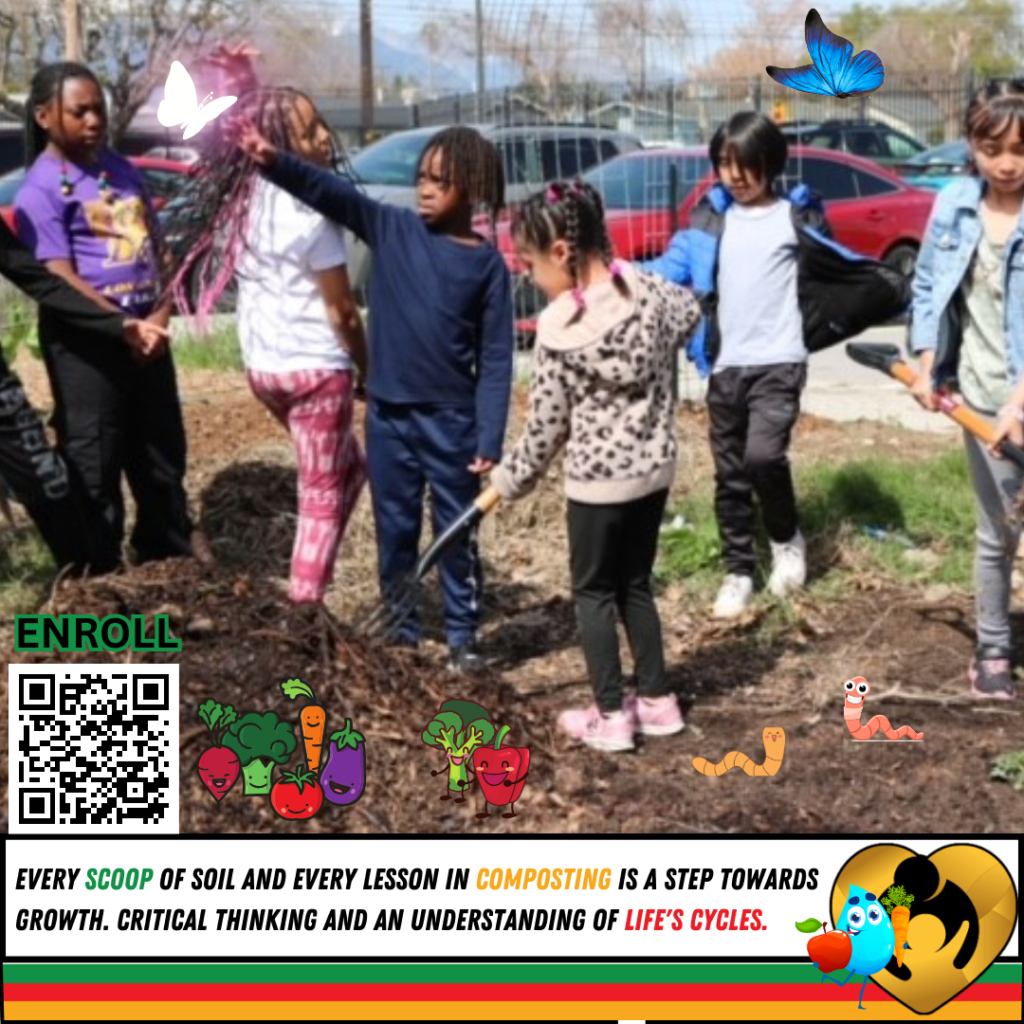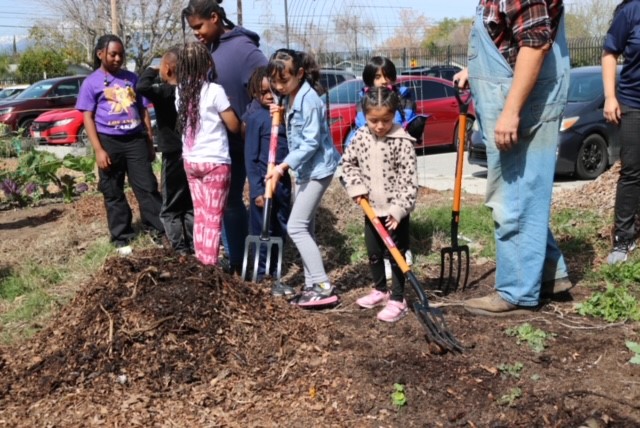In the bustling rhythm of urban life, the simple acts of composting and gardening are often overlooked as powerful educational tools. Yet, at Akoma Unity Center, we recognize the immense benefits these green practices provide for nurturing young minds. In this blog post, we delve into how the intimate act of tending to the earth through composting and gardening can yield bountiful lessons for our youth.
A Lesson in Sustainability: Gardening starts with understanding the delicate balance of nature. Composting, the process of turning organic waste into rich soil, serves as a practical demonstration of recycling and sustainability. As young individuals watch scraps transform into fertile ground, they learn the value of reducing waste and giving back to the earth—a lesson crucial for a sustainable future.
Science in Action: Composting is a living science lab, teeming with biological processes. Youth can witness the breakdown of organic matter, understand the role of microorganisms, and observe the life cycle of decomposition. This hands-on experience brings scientific concepts to life, allowing children

to see firsthand the impact of environmental stewardship and the role they can play in it.
Mathematics Meets the Earth: Gardening is a practical application of mathematics. Children learn to measure garden plots, calculate the right amount of water for plants, and track growth rates. Composting requires understanding ratios and proportions, such as balancing greens and browns or calculating the volume of compost needed for specific garden areas. These activities reinforce classroom math skills in a real-world context.
Artistic Growth: The garden is a canvas, and composting is one of the artist’s tools. Youth can explore their creativity through garden design, learning about colors, textures, and the visual harmony of plant combinations. Creating composting bins also offers a chance to decorate and personalize, tying in the arts with environmental science.
Emotional and Physical Well-being: Gardening and composting are not just mentally stimulating; they’re physically engaging and emotionally grounding. Working with soil has been shown to increase serotonin levels, improving mood and reducing anxiety. Physical activity in the garden promotes health, while the responsibility of nurturing plants fosters empathy and caretaking skills.
Community and Connection: These green activities can strengthen community bonds. When children work together in a garden, they build teamwork and communication skills. Sharing the harvest or teaching others about composting extends these connections, creating a sense of accomplishment and belonging.
At Akoma Unity Center, we believe that composting and gardening are more than extracurricular activities; they’re fundamental to the holistic growth of our youth. Through these earth-based practices, children develop not only an appreciation for the environment but also gain valuable life skills. As we cultivate our garden, we also cultivate the minds and hearts of the young people who will become the caretakers of our planet. Join us as we plant seeds for a greener, more mindful future.

